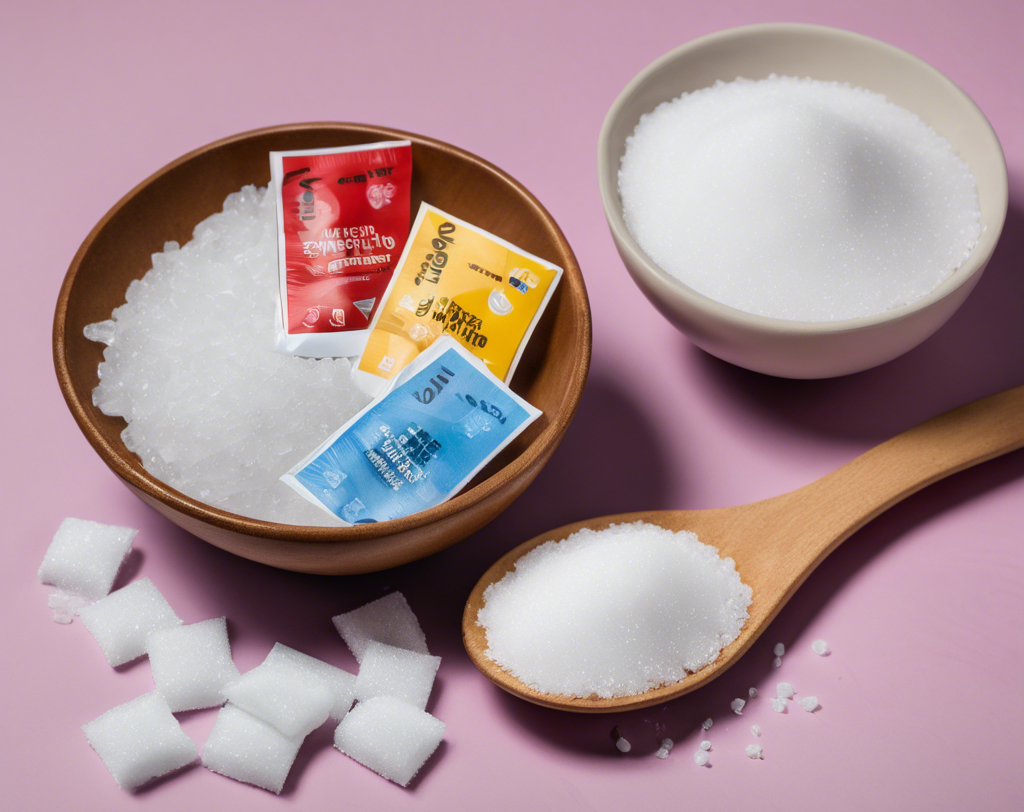Concerning the choice between short-term saccharine and sugar in the era of acknowledged healthy living, the subject is as relevant as ever. Both sugar and artificial sweeteners are used in food preparation, each with its own advantages and drawbacks. Determining which is healthier is complex. Let’s explain the details of Artificial Sweeteners vs. Sugar: Which is Healthier? to better assist you in making the best decision.
What Are Artificial Sweeteners?
As their name suggests, artificial sweeteners are chemically synthesized compounds that are several times sweeter than sugar. Examples include aspartame, sucralose, and saccharin. Commonly found in diet soda, sugar-free gum, and low-calorie candy, these sweeteners are used to sweeten products without adding calories.
Pros of Artificial Sweeteners
Low in Calories: They have little to no calories that is why they are used commonly by those who are and attempted to diets.
Dental Health: Compared to sugar, artificial sweeteners do not lead to formation of cavities, and therefore are more appropriate for use.
Blood Sugar Control: What is unique about these sweeteners, they do not affect the blood sugar level hence allowing diabetics to take them.
Cons of Artificial Sweeteners
Possible Health Risks: Other research has pointed out negative effects of artificial sweeteners on health like getting headaches, gastrointestinal disorders, and even cancer although not conclusive.
Taste: Some consumers report that even in smaller amounts, sweeteners taste less appealing than sugar.
What About Sugar?
Sugar is a sweet-tasting additive found in most foods and drinks. Despite the fact that it forms a regular staple in most of our meals, consumption of sugar is dangerous for our health.
Pros of Sugar
Natural Source: Sugar is a natural substance which most people believe is less processed than the artificial sweeteners.
Taste: It is evident that the natural sweetening agent, sugar, is much preferred over the others by many consumers.
Cons of Sugar
High in Calories: Something like sugar is high in calories thus can lead to addition of more calories and eventually more weight.
Health Risks: This unveil shows sugary food products contribute to obesity, diabetes, heart problems, and gum diseases.
Conclusion
This paper therefore concludes that like pulling the wagons of a railroad in different directions both artificial sweeteners and sugar have their strengths and weaknesses. Artificial Sweeteners vs. Sugar: Which is Healthier? Artificial sweeteners might be a better option for those tracking calorie intake or managing diabetes. While contrary to popular belief, they can be safely used in moderation. However, for a natural approach which in my opinion is better, taking sugar in small quantities can be appropriate. It is always important to seek advice from a health care provider to go for what is best for your health.


